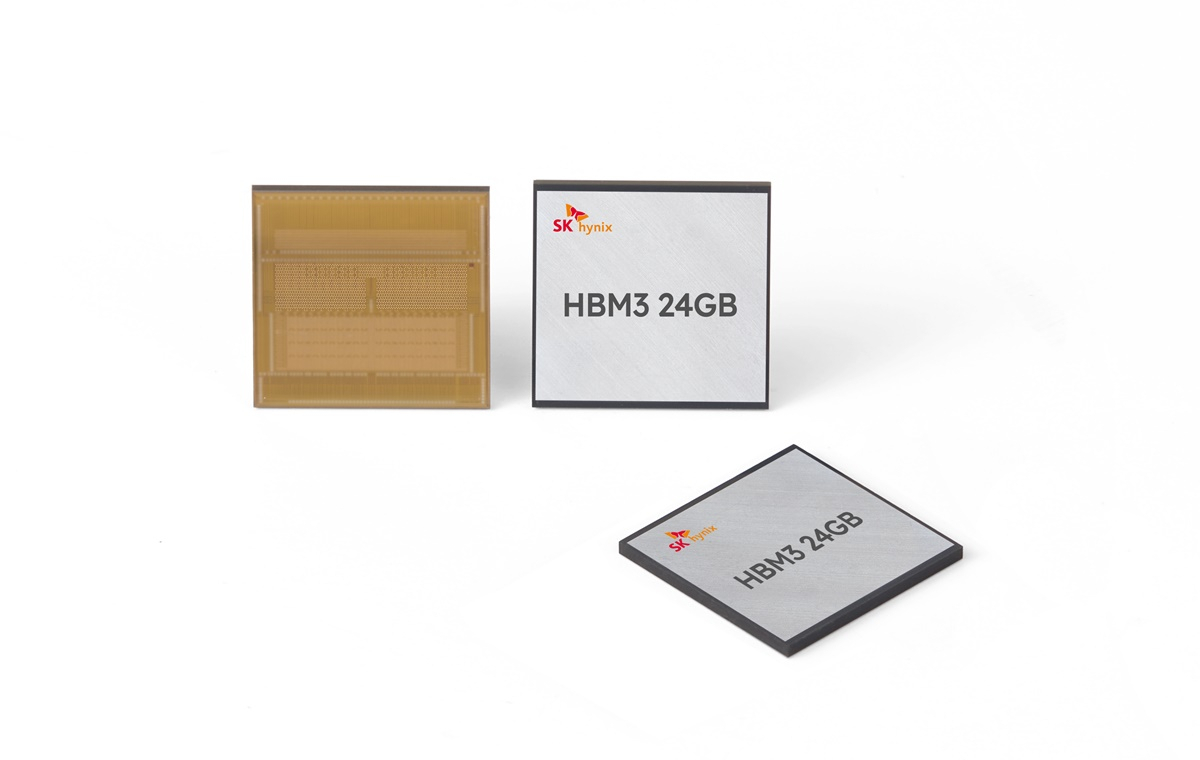[KH Explains] SK hynix, Samsung compete head-on for HBM leadership
War of nerves between Korean rivals already heating up in still nascent memory chip market
By Jo He-rimPublished : July 17, 2023 - 10:57


Competition is heating up between Samsung Electronics and SK hynix to take the lead in the next-generation High Bandwidth Memory chip market, which holds great potential for growth with the rise of artificial intelligence and high-performance computing.
Even though the market is still in its nascent stage, the world’s top two memory chip makers have already started a war of nerves, each claiming they take the majority of the market share.
High Bandwidth Memory or HBM is a new type of DRAM memory chip that addresses more diverse and complex computational needs via its high input and output speeds. For now, HBM accounts for about 1.5 percent of the DRAM market, but industry watchers expect the market to grow quickly with the demand for massive AI servers.
AI servers require about two- to three times as much DRAM as ordinary servers.
Market tracker TrendForce said HBM could overcome hardware-related bottlenecks in AI development, predicting global demand would reach 290 million GB this year, growing 60 percent on-year.
SK hynix is considered the frontrunner in the race as it was the first to introduce HBM back in 2013. According to TrendForce, SK hynix takes up almost 50 percent of the market share as of 2022, closely followed by Samsung with some 40 percent and US chipmaker Micron Technology with 10 percent.
But Samsung does not agree with the Taiwanese research firm. In a staff meeting earlier this month, Kyung Kye-hyun, one of Samsung’s co-CEOs and president of the Device Solution division overseeing the tech giant’s chip business, said Samsung has over half of the global HBM market.
“Samsung’s HBM chips account for more than 50 percent of the market share, and clients have said our HBM3 has excellent performance. HBM3 and HBM3P will contribute to increasing the DS division’s profit next year,” Kyung was quoted as saying, likely referring to samples of upcoming HBM3 products.
SK hynix also fought back in a recent meeting with analysts.
"We expect the HBM sales to go up by about 70 percent in the third quarter this year, from that of the second quarter," the chipmaker told the analysts. "As for HBM3, the newest product we supply exclusive in the market, we expect the sales to double, and SK will maintain its dominance in the product."
In April, SK hynix announced that it succeeded in developing the world’s first 12-layer HBM3. At present, the company is the only one capable of mass-producing HBM3 chips.
TrendForce said SK hynix will further increase its market share to 53 percent as more clients adopt HBM3 chips. Samsung and Micron were estimated to start mass production toward the end of this year or in early 2024, with their market shares standing at 38 percent and 9 percent, respectively.
Samsung has recently purchased more advanced equipment with the goal of doubling its HBM production capacity by the end of next year, planning to invest some 1 trillion won to bolster the production facilities.
Samsung currently produces HBM2 and HBM2E chips, with plans to start mass production of 8-layer HBM3 and 12-layer HBM3E in the second half of this year. The firm is also preparing to roll out its unique HBM Processing-In-Memory chip within the year.
SK hynix is considering an investment of some 1 trillion won to expand the production capacity of its HBM plant in Icheon, Gyeonggi Province.
The Korean chip rivals are struggling to make ends meet in the wake of a severe downturn in the global chip market.
For the April-June period this year, both Samsung and SK hynix are expected to post quarterly losses in their chip business amid sluggish demand. Samsung’s DS division is estimated to post an operating loss of some 3 to 4 trillion won, while SK hynix is forecast to report an operating loss of about 3 trillion won.












![[Weekender] How DDP emerged as an icon of Seoul](http://res.heraldm.com/phpwas/restmb_idxmake.php?idx=644&simg=/content/image/2024/04/25/20240425050915_0.jpg&u=)







